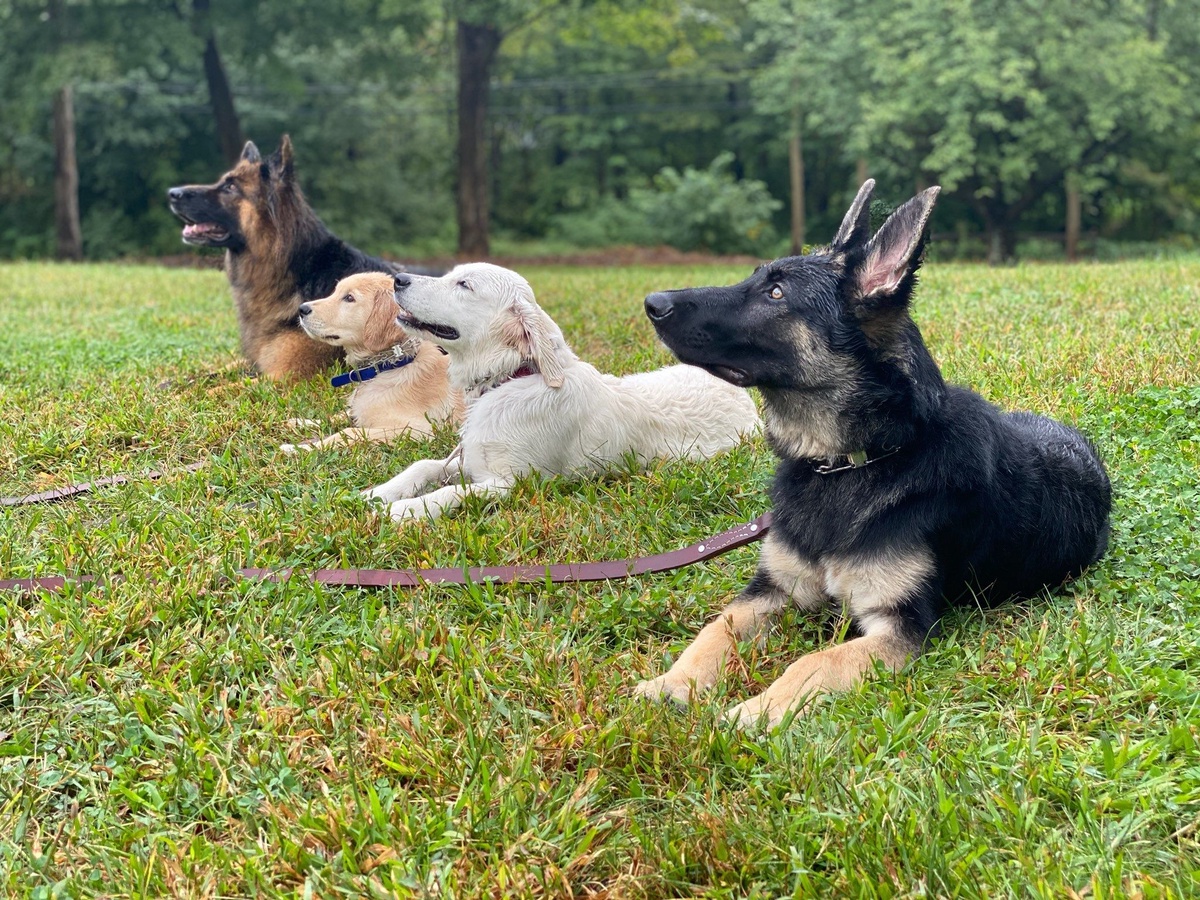Why Dog Training is Important
Dog training is essential for a well-behaved and happy pet. It establishes clear communication, builds trust, and enhances the bond between owner and dog. Dog Training provides mental stimulation, reduces behavioural issues, and ensures safety in various situations. Ultimately, it leads to a harmonious and fulfilling life for both dog and owner.
1. Understanding Your Dog's Individual Needs
Understanding your dog's individual needs is crucial for their well-being. Factors like breed, age, energy level, and temperament influence their requirements for exercise, mental stimulation, and social interaction. Tailoring care to suit these specifics ensures a contented, balanced, and thriving canine companion.
a. Factors influencing training frequency:
Training frequency depends on a dog's age, breed, temperament, and learning pace. Younger dogs require more frequent, shorter sessions, while older dogs may benefit from longer, less frequent sessions. Consistency is key for all.
-
- Age of the dog: A dog's age impacts training. Puppies have shorter attention spans, while older dogs may require more patience and adaptability.
-
- Breed characteristics: Breed characteristics encompass traits like energy level, temperament, intelligence, and instinctual behaviours, influencing the approach and methods used in training.
-
- Temperament and personality: Temperament and personality define a dog's nature, affecting their response to training. Understanding these traits helps tailor effective and appropriate methods.
-
- Previous training history (if any): A dog's previous training history can influence their learning pace, habits, and potential behavioral challenges, guiding the training approach accordingly.
b. Identifying your dog's learning style:
Identifying your dog's learning style involves observing if they respond better to visual cues, verbal commands, or hands-on demonstrations for effective training.
-
- Visual learners:
Visual learners grasp commands through demonstrations and observing. They rely on clear, visual cues for effective training and learning.
-
- Auditory learners:
Auditory learners respond well to verbal cues and commands. They learn through hearing and listening, making clear, consistent instructions crucial for training.
-
- Kinesthetic learners:
Kinesthetic learners learn by doing. They require hands-on, physical interaction and repetition to understand and retain training commands effectively.
2. How Long and How Often Should I Train My Dog?
Training sessions should be short, around 10-15 minutes for puppies and 20-30 minutes for adult dogs, to keep them engaged and prevent fatigue. Aim for 2-3 sessions daily, maintaining consistency and positive reinforcement. Regular, short bursts of training yield better results than infrequent, long sessions.
3. Seeking Professional Help
Seeking professional dog training help is wise if struggling with training. Trainers have expertise to assess, address behavior problems, and offer tailored solutions. They provide guidance, techniques, and ensure a positive, safe learning environment for both owner and dog.
a. Recognizing when to consult a professional dog trainer:
Consult a professional dog trainer if struggling with severe behavioral issues, aggression, or if basic training methods prove ineffective.
b. The benefits of group classes and one-on-one training sessions
Group classes provide socialization and controlled distractions, while one-on-one sessions offer personalized attention and focus on specific issues, ensuring effective training.
c. Finding a qualified and reputable dog trainer
Empire State K-9 Training, LLC boasts certified trainers with proven expertise, positive reviews, and a track record of successful, customized dog training.
4. Conclusion:
Empire State K-9 Training, LLC emphasizes tailored training schedules to suit individual dogs. Consistency, short and engaging sessions, and seeking professional help when needed are key. Trust their certified experts for a well-behaved and happy canine companion.


No comments yet